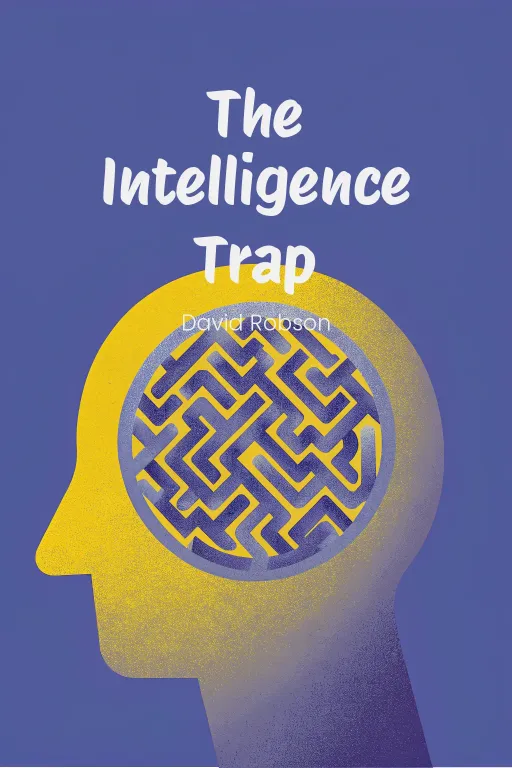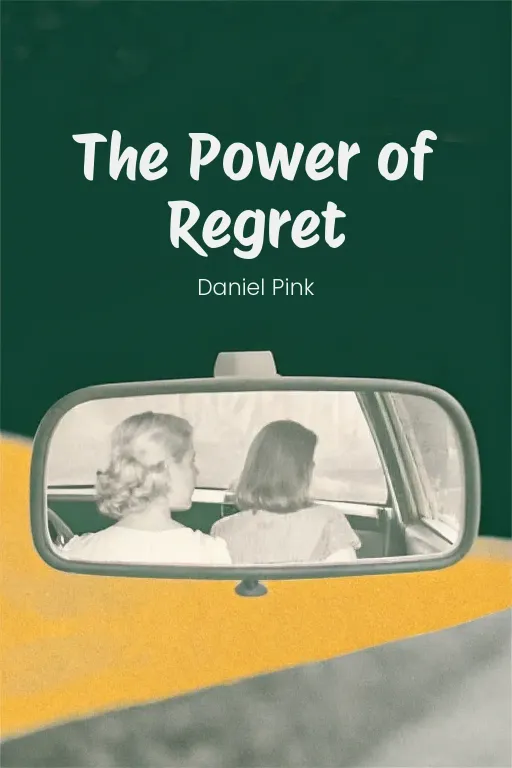
Master Your Mood: 7 Habits for Tough Times
Podcast by The Mindful Minute with Autumn and Rachel
The 7 Things Resilient People Do Differently (And How They Can Help You Succeed in Business and Life)
Introduction
Part 1
Autumn: Hey everyone, welcome back to the show! Today, we're diving into something super relatable: emotional resilience. I mean, Rachel, be honest, has there ever been a day when your emotions just completely took over? Rachel: <Laughs> Oh, you know it. Every single time they mess up my coffee order. It's emotional anarchy in a cup, I tell you. Autumn: Seriously! We all have those moments where life throws us a curveball, and suddenly, our emotions are driving the bus. But, I've been reading Akash Karia’s book, “Emotional Habits: The 7 Things Resilient People Do Differently”, and it’s like a manual for grabbing the wheel back. Rachel: A manual, eh? Does it come with, like, a Siri voice that tells you to “recalculate” every time you freak out? Autumn: <Laughs> Kind of! It's all about building habits that change how you handle those tough situations. It's practical, backed by science, and can really change how you approach problems, both at work and in your personal life. Rachel: Okay, I'm intrigued. So, what exactly are we going to explore today? Autumn: Great question! We are going to break down seven habits that resilient people use to “really” thrive. Think of it as building up your emotional toolbox. First off, there’s acknowledging your emotions, which is like, the first step—opening the door to understanding yourself. Then, we're going to master your physiology, which is “really” about how you can use your body to shift your mood. You know, like how your posture can actually change how you feel. Rachel: So, just striking a superhero pose solves everything? Got it. Time to practice my Superman stance. Autumn: <Laughs> Well, that's just the beginning! We're also going to dive into reframing your beliefs—how to turn those setbacks into stepping stones, using questions to guide your mindset, rewriting your self-talk, controlling your focus to stay empowered, and even visualizing future challenges to prepare yourself mentally. Rachel: Seven habits, huh? Sounds intense, like an emotional fitness bootcamp Autumn: Exactly! And by the end of this, you'll see these habits aren’t just ideas, they’re real tools you can use to bounce back from anything life throws at you. Ready to get started?
Emotional Resilience
Part 2
Autumn: Alright, so picking up where we left off, emotional resilience is really about building habits that help us handle life's curveballs with strength and, you know, a sense of purpose. Remember that roadmap we were talking about? Rachel, remind everyone of the first stop. Rachel: Ah, yes, the one where we’re supposed to, like, calmly invite anger or frustration in for a chat. I'm already picturing myself just slamming the door in their faces. Autumn: <Laughs> Not exactly, but I love the visual. The idea is to notice your emotions without judging them. You know, most of us either completely ignore them or let them turn into total chaos, which, surprise, doesn’t help. People who are resilient actually try to figure out what their feelings are trying to tell them. It's like, building emotional intelligence, one feeling at a time. Rachel: Okay, so instead of, like, losing it at the slow driver in front of me, I should be asking myself, "Why am I getting so worked up about this?" And then... write about it in my journal? Autumn: Exactly! Emotions give us data. For example, anger might mean you have an unmet expectation or someone's crossing a boundary with you. By pausing and really digging into it, you basically take back control. Think about Viktor Frankl stuck in the Holocaust. He couldn't change what was happening to him, but he found meaning by controlling his reaction to it. Rachel: Look, I get what you're saying about understanding emotions, but comparing traffic to, uh, existential horrors might be a bit much, no? Anyway, I get it: first, you gotta own up to what's going on inside. What’s next on our journey? Autumn: Next, you master your emotions by using your body. It's amazing how much our physical state affects how we feel. Take Amy Cuddy’s power pose research. It literally showed that standing like Wonder Woman can cause real physiological changes. You know, like lowering stress hormones and boosting confidence. Rachel: Wait a minute, so, if I strike a superhero pose in the middle of a stressful meeting, I’ll magically feel calm and confident? Autumn: Okay, maybe don’t do it right in front of the entire boardroom. But yes, absolutely. It's not magic. It’s actually science. Even just controlling your breathing can make a big difference. Slow, deep breaths basically tell your brain that you're safe, which shifts your emotional state. Rachel: Gotcha, so instead of screaming at my overflowing inbox, I should be doing yoga breaths while standing like Superman? Sounds... interesting. Autumn: Precisely! It’s about stopping the stress cycle before it takes over. Your body is a tool. Use it wisely. That changes how you feel and how you act. Rachel: Alright, fine. I'll give the pose-and-breathe method a try. But what about when the emotions are “really” intense, like, with big challenges? Striking a pose won’t magically solve that. Autumn: That's true, it's not enough on its own. That leads us to the third habit: controlling how you interpret what's happening. This is all about reframing. Resilient people can take the same event, a disappointment or a challenge, and change the story around it. Remember the example in the book about the two employees who lose their jobs? Rachel: Right, the "end of the world" versus "fresh start" thing? Autumn: Exactly! The first employee just spirals, right? But the second sees a chance to grow. That difference comes down to your focus. By choosing to ask yourself questions, like, "What can I learn from this?" or "How can this lead to something better?", you shift the meaning and, as a result, the emotional impact. Rachel: So, instead of typing "Worst day ever!!!" in my journal, I should be writing something like, "Exciting chapter of reinvention?" Autumn: Now you’re getting it! Life is definitely going to deal you some tough cards, but reframing can turn those hands into teachable moments. You know? It’s being proactive instead of just reacting. Rachel: Sounds annoyingly logical. Okay, so I’ve faced my emotions, stood tall, and rewritten the story. Where are we on this resilience trek now? Autumn: We’re moving into beliefs, which is the fourth habit. And this one is huge. Resilient people question the conditional beliefs that hold them back. You know, like when people tell themselves, "I'll be happy when I get that promotion," or "I'll be okay once this situation is over." Those beliefs are emotional traps. Rachel: So, your happiness is basically waiting at some distant finish line. What’s the alternative then? Autumn: Resilient people build empowering beliefs instead. The book suggests things like journaling gratitude or creating empowering affirmations. It’s about being happy and finding purpose in the moment, not tying them to some made-up future. That frees you up to feel resilient and fulfilled no matter what's happening. Rachel: Okay, but let me play devil's advocate here. Couldn’t that become toxic positivity, where you’re just spouting sunny mantras and ignoring “real” problems? Autumn: That is such a good point. Acknowledging emotions and reframing challenges doesn't mean ignoring the heaviness of tough situations. It’s just a method to refocus so you can work through them constructively. Rachel: No, "Everything is awesome!" as the fallback belief? Phew. Autumn: Nope. Think empowering truths, not empty cheerleading. And speaking of truths, another key to emotional resilience is asking the right questions. They guide your mental focus. Rachel: You mean, like, instead of "Why does the universe hate me?" asking "How can I make this better?" Autumn: Exactly! Empowering questions shift your focus towards solving the problem and learning something. They stop you from just spiraling and instead, encourage you to be curious and think critically. Rachel: Alright, I’ll admit this one makes sense. It’s like upgrading your internal Google search. Instead of typing “life is awful,” you ask it to deliver something useful, like “ways to solve this problem.” Autumn: I love that analogy! It’s spot on! Our minds will give you answers. So, asking better questions is like telling your brain to search for productive answers instead of dwelling in hurt or fear. Rachel: As long as there are no pop-up ads, I am on board. Keep going.
Conclusion
Part 3
Autumn: So, Rachel, after diving deep today, we’ve covered some crucial ground—understanding our emotions, getting our bodies on board, seeing challenges differently, and asking ourselves smarter questions. These habits? They're the bedrock of emotional resilience, what helps us get back on our feet and actually flourish when things get tough. Rachel: Right, but let's be clear—we're not talking about burying emotions. It’s about getting what they’re trying to tell you. Those feelings of, like, frustration or fear or whatever, they’re not just noise. They’re signals, right? Nudging you to get clearer, grow a little, or, you know, just make better choices. Autumn: Precisely. Emotional resilience isn’t about being a rock; it’s about learning to bend without breaking. To adapt. To come back stronger than before. And the great thing is, it’s a skill, a muscle we can all develop. Rachel: Okay, so next time the barista messes up my latte, instead of spiraling into a full-blown existential crisis, I should…breathe deeply, maybe strike a power pose in the coffee shop line, figure out what I'm supposed to learn from the experience, and, what, actively seek out the silver lining? Autumn: <Laughing> That's the idea! The key here is recognizing that, yeah, life’s going to keep throwing curveballs. But when we practice these habits, we get better at catching them. Even when they’re coming out of nowhere. Rachel: Alright, I’m buying it. So, listeners, homework time: next time life throws you a curveball, and you feel your blood pressure rising, just pause. Call out what you’re feeling, try to see things from a different angle, and ask yourself, "Okay, what's ONE small thing I can do right now to move forward?" Autumn: Exactly. Emotional resilience isn't some abstract idea; it's a practical toolkit for dealing with whatever life throws at you. Start small, practice consistently, and you'll be amazed at how much stronger you become. Until next time! Rachel: And hey, remember, life’s messy, and that’s okay, that’s part of the experience. Stay curious, stay flexible, and maybe, just maybe, skip the caffeine-fueled rage. Catch you all next time!









